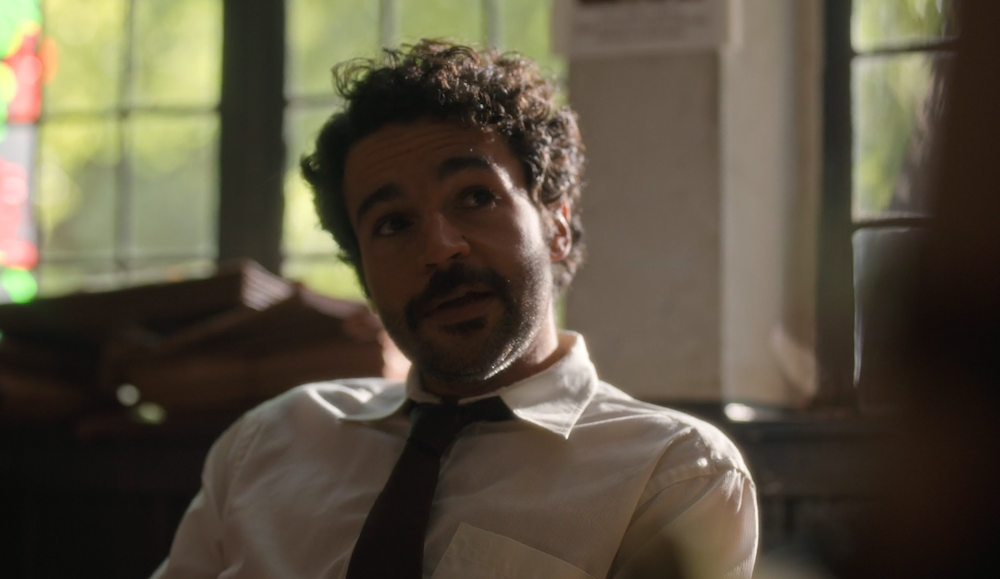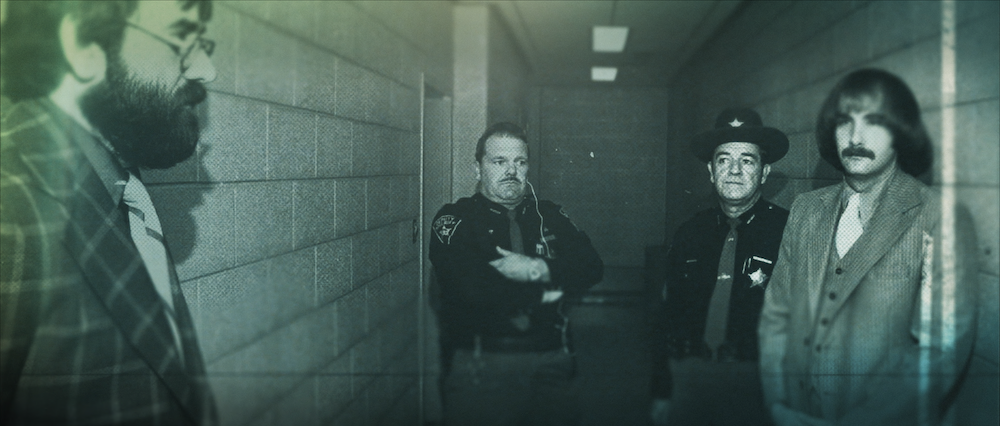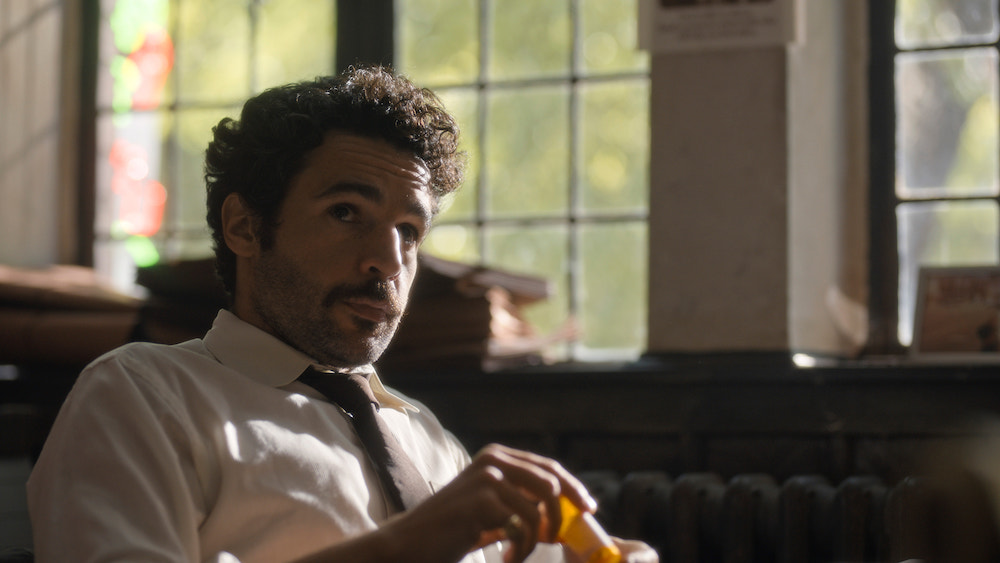Apple TV+’s ‘The Crowded Room’ follows the story of Danny Sullivan, arrested for opening fire at the Rockefeller Centre. When the cops interrogate him to determine the reason behind his actions, they discover that Danny’s situation is much more complex. To understand him, they bring in psychologist Rya Goodwin, who becomes fascinated with Danny and decides to get to the bottom of the truth no matter what it takes.
In the sixth episode of the series, which follows Rya’s point of view and gives us an insight into her motivations behind interviewing Danny, we meet his lawyer, Stan Camisa. With the trial date approaching and Danny’s fate hanging in the balance, Camisa agrees to let Rya do her thing and find a way to keep Danny from going to prison. SPOILERS AHEAD.
Stan Camisa: Inspired by Milligan’s Real-Life Defenders
‘The Crowded Room’ is inspired by the true story of Billy Milligan, the man who became the first person to be acquitted of his crimes with Dissociative Identity Disorder as part of his not-guilty plea. He was arrested in 1977 and accused of kidnapping, robbing, and raping three women in the Ohio State University area. He was represented in court by public defenders Gary Schweickart and Judy Stevenson. With Tom Holland’s Danny Sullivan directly inspired by Milligan, we can assume that Stan Camisa is an amalgamation of Gary Schweickart and Judy Stevenson.

In the show, Rya shows up at Camisa’s office, where she offers to psychoanalyze Danny and prove that he has a mental disorder that could help his case by building the defense on the basis of insanity. In real life, too, Schweickart and Stevenson had Danny analyzed by several psychiatrists, the results of which confirmed that their client couldn’t be held responsible for his actions because he was not aware of them when his other personalities were perpetrating the said crimes.
The defense argued that the robberies were committed by a Yugoslavian man named Ragen, and Adalana was responsible for the rapes. Both of them were one among the 24 personalities inside Milligan’s head. They delved into Milligan’s history, where testimonies from his family members revealed that he had been physically and mentally abused by his stepfather. Milligan also claimed he was sexually abused.
The lawyers argued that sanity was a legal term, not medical and that Milligan’s case should be considered with that in mind. Luckily for Milligan, the defense’s arguments worked out, and he was declared “not guilty by reason of insanity.” Instead of prison, he was sent to psychiatric hospitals where he received treatment for his condition.
Billy Milligan’s Lawyers’ Whereabouts Remain Unknown Today

Despite handling such a high-profile case, little to nothing is known about Milligan’s lawyers, Gary Schweickart and Judy Stevenson, apart from the fact that they were classmates and graduated from the Capital University Law School in 1974. Once they got Milligan out of prison, they didn’t handle his case again and slipped away from the media limelight. A description of Schweickart from his appearance during Milligan’s trial describes him as follows. “Schweickart’s scuffed brown shoes looked suitable for hiking. His beard was full, if somewhat ill-defined, and his dark hair, which hung down unevenly over his forehead, rambled backward until it curled over his collar.”
Before they took Milligan’s case, the duo had already gained a reputation for themselves, and their compelling arguments during the trial showed how competent they were. When defending Milligan, they didn’t leave any stone unturned and decided to go with the DID appeal, even though it had never been done before. They also tried to keep Milligan in stale conditions during his trial. Reportedly, Schweickart claimed that keeping Milligan in prison led to the strain of confinement, which resulted in the deterioration of his client’s mental state.
During the trial, Milligan’s several personalities showed up through therapy and psychiatric treatment, bolstering his case. Later, however, Schweickart revealed that one personality had not shown up during treatment. Reportedly, one of the personalities that showed up during the rapes was known to have used foul language. But none of the personalities that showed up during therapy tended to use harsh words. Schweickart believed that there were many things left to unearth about Milligan’s past, which could only be done by therapy and proper care.
Read More: Who Was Billy Milligan’s Psychiatrist Cornelia Wilbur?


You must be logged in to post a comment.